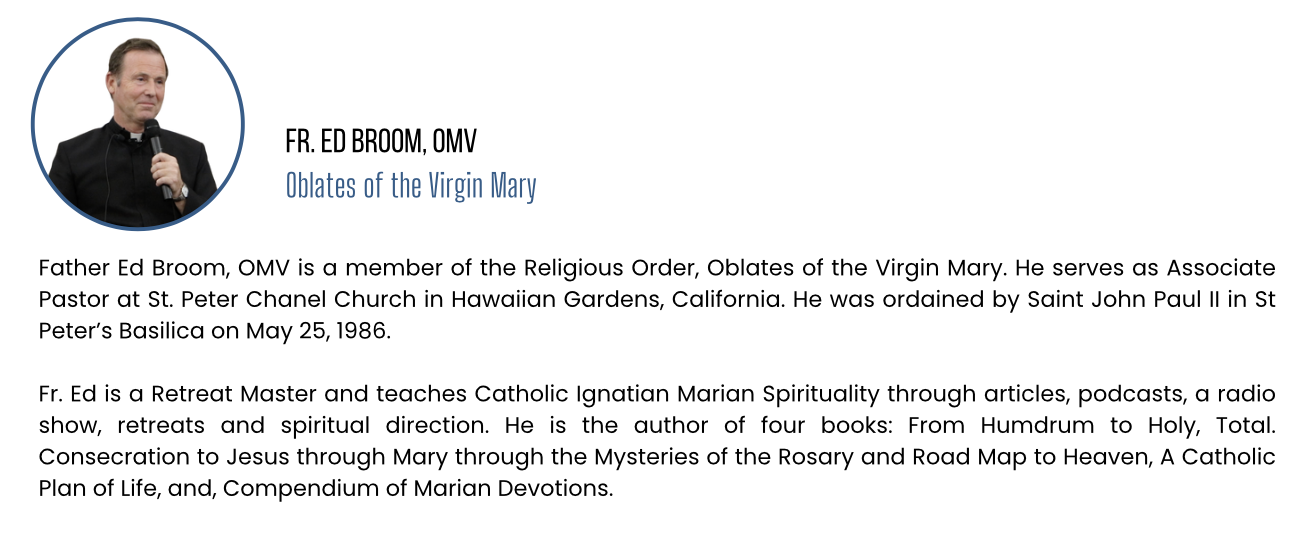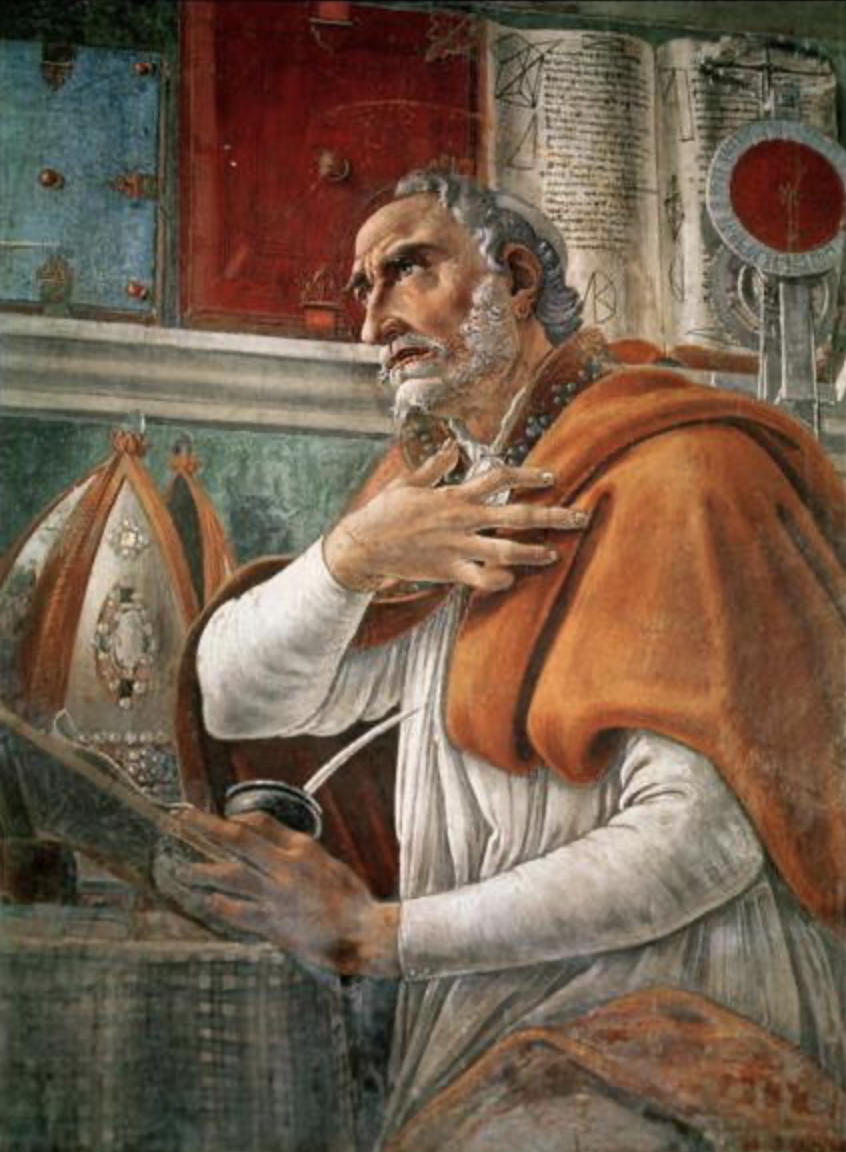

One of the most fascinating stories in the History of the Church and the History of civilization is the person, the life, and the radical transformation of Augustine of Hippo. The transformation would be nothing less than his conversion, sanctification and life of extraordinary holiness.
Every non-believer is potentially a believer; every pagan one day can be a Christian; also, every hardened sinner can be transformed into a radiant saint. How true the maxim: “All things are possible for God.” With His grace, God can transform the worst morally speaking into the best reflection of sanctity.
Every person’s past does not determine their future. Even the most dastardly of sinners, living the worst lives, can end in total victory. How ironic it really is that the first canonized saint, the first saint who was declared that his place would be in heaven, was none other than one of the thieves who hung on a cross beside Jesus on Mount Calvary that first Good Friday afternoon.
At the very end of his life, the thief turned to Jesus and begged Him: “Lord, remember me when you come into your Kingdom.” The response of Jesus: “Amen, I say to you, today you will be with me in Paradise.” (Lk. 23: 42-43) And Venerable Fulton J. Sheen replied: “And the good thief died a thief because he stole heaven.”
Returning to Augustine, the first half of his life was far from perfect. Quite the contrary, his early years were splotched with a multitude of sins. When a child, as a result of peer pressure, he stole. His friends entered an orchard and stole pears. Even though Augustine’s conscience warned him not to steal the pears, he did anyway. He did not want to be different from the crowd.
However, what is most pertinent to our reflection is the family of Augustine and his fatal flaw, his predominant weakness, his overpowering Capital Sin. Using modern terminology, Augustine was brought up and raised in a dysfunctional family.
His father, Patricius, did not give Augustine a splendid model of holiness. Quite the opposite! Augustine’s father had three glaring moral weaknesses: violence, intemperance, and lust.
Augustine’s father would fly off the handle and explode at the drop of a hat. His carousing, drinking and getting drunk was part and parcel of Augustine’s upbringing. As if that were not enough of a bad influence, Patricius was a real womanizer. He fell far from the mark in being faithful to his wife Monica.
Consequently, as a result of this catastrophically immoral father image, Augustine followed in his father’s footsteps, most specifically with respect to lust, the disordered desires of the flesh.
When his passions were ripe, the young Augustine gave free rein to the desires of the flesh. He eventually lived with a woman. Giving thus into his passions resulted in Augustine and his concubine having a child together, whose name was Adeodatus—meaning, “Gift of God”.
Time went on and as one year gave way to another year, Augustine practiced his career in rhetoric—the art of public speaking. From Africa he moved to Rome, and from Rome to Milan in northern Italy.
Gifted with a keen intellect and an ability to teach the art of public speaking, Augustine experienced in the depths of his heart a loneliness, a sadness, a depression, and a real uneasiness.
He understood that his major drawback was the simple fact that he was a slave to his passions, to his lusts. We can even say in modern jargon that Augustine was a sex addict. That’s right, Saint Augustine really was a sex addict. He knew in the depths of his heart that he had to give up his lusts; he had to break the chain of his sexual addiction; he had to smash this slavery that was fiercely binding him. The battle was so fierce that he cried out: “Lord, give me chastity, but not yet.”
Saint Paul expressed it in more or less the same words, saying that he knew the good that he should do, but he was powerless to carry out the good that he knew was best for him. Jesus expressed the battle as such: “The spirit is willing, but the flesh is weak.” (Mt. 26: 41)
However, victory was about to triumph in this slave of addiction to his sexual passions. Augustine was in a garden in Milan when it seemed as if the voice of a child was chiming a poem that resounded in his ears: “Tolle legge, tolle legge, tolle legge—take and read!”
Nearby was a book and it was actually the New Testament opened to one of the Letters of Saint Paul to the Romans. Augustine picked up the text and read it: “Let us then throw off the works of darkness and put on the armor of light. Let us conduct ourselves properly as in the day, not in orgies and drunkenness, not in promiscuity and licentiousness, not in rivalry and jealousy. But put on the Lord Jesus Christ and make no provisions for the desires of the flesh.” (Romans 13: 12-13)
In this moment, these words of an angel, this text from Romans, and the mind and heart of Augustine now receptive to grace, resulted in his desire for conversion.
Augustine, who had been addicted to disordered sexual desires into his early thirties, made the decision to cut the chain of his slavery in that moment in the garden in Milan.
Augustine went quickly to his mother, Saint Monica, and told her that he was ready now to be baptized. He was ready to abandon his past and start a new life. He truly was ready and willing to start this new life. He would abandon the past to God’s infinite mercy, leave the future to God’s providential care, and live fully the Sacrament of the present moment.
In fact, Jesus had been knocking at the door of his heart for many years now and Augustine was finally ready to open the door fully so that Jesus could sit at the table and dine with him and initiate a new, dynamic and profound friendship.
To make a long story short, Augustine would be baptized with his son, and with his good friend Alypius, by the great Saint Ambrose in the Duomo of Milan, amidst the tears of joy of his mother Saint Monica.
Augustine was embraced by Jesus when he embraced the virtue of chastity in his new lifestyle. He experienced an interior freedom that he had never before experienced. The chains had fallen; the slavery was vanquished; the addiction immersed, submerged and drowned in the love of the Heart of Jesus.
Augustine went on to receive Holy Orders of the priesthood. He would be proclaimed a Bishop in Africa. Eventually he would found an Order—the Augustinians. The rest of his life as Bishop, he would fight against the many heretics of the day—the Arians, Manicheans, Vandals, and more.
Augustine, who would become the great Saint Augustine, would be inspired by the Holy Spirit to become one of the greatest teachers, preachers, but most important, writers in the history of the Church, in the history of the world.
Any well-learned scholar, whether he be a believer or even non-believer, cannot help but admire the literary genius of the great Saint Augustine. Indeed, if you have the chance, spend time reading, meditating, and reflecting upon his masterpiece Confessions.
Now whatever slavery, addiction or binding chain that we may be battling with, we must realize that we are not alone. In fact, the Word of God teaches us that if we decide to follow the Lord, we should be prepared for battle.
BATTLEGROUND. Our battle must be waged on three fronts: 1) The devil who is the Father of lies; 2) The flesh, or concupiscence, that does not want to submit to the spirit; 3) The world that strives to convince us that true happiness can be found in this world.
AUGUSTINE AS A MODEL. In our struggle to attain the true liberty of the sons and daughters of God, let us take Augustine, who became the great Saint Augustine, as our model. Many of us, in fact most of us, can easily identify with Augustine and in many ways.
- PAGANISM. Augustine lived in a truly pagan-world; recently, we all must admit that our society is permeated by a militant neo-paganism.
- DYSFUNCTIONAL FAMILY. Many today come from, and perhaps still live in, a dysfunctional family.
- FATHER-WOUND. Many suffer from addictions and slaveries in one form or another due to the lack of the presence, love and attention of a father. Most obviously, Augustine had a gaping father’s wound.
- ADDICTION/SEXUAL ADDICTION. Augustine was a slave of a sexual addiction. In a pornographic society many have addictions, and many are related to sexual addictions.
- CONVERSION. Augustine was able to undergo a radical conversion of life. There were many factors, especially the prayers of his mother, Saint Monica, as well as openness to grace. If Augustine could break the chain of his sexual addiction, so can we break the many chains that bind us.
In sum, let us pray and meditate over the life, the conversion, and the transformation of Augustine to Saint Augustine. In fact, God has great plans for all of us once we can listen to the voice of the Lord Jesus who calls us, as He called Augustine, Matthew, and the Good Thief. The worst lives of the past can be transformed into the best of lives in the future. That life can be yours!!!